Share

Human Restoration Project
103: Poetry, Schooling, and Flourishing Creativity w/ Joshua Seigal
Joshua Seigal is a highly acclaimed, award-winning professional poet, performer and educator. Joshua uses poetry to develop literacy skills and inspire confidence and creativity in communication. He has worked in hundreds of schools, libraries, theatres and festivals around the world, had books published by Bloomsbury and other major publishers, and has written and performed for BBC television. Joshua Seigal has recently been awarded the 2020 Laugh out Loud Book Award for “I Bet I Can Make You Laugh”, and shortlisted for the 2021 Peoples Book Prize for “Yapping Away”. In this episode, I talk to Joshua about his journey from academia to poetry as well as his own experiences attending British schools and the perspective he has on them now as an adult, and of course we get a bit of a poetry reading near the end. I should add that I recorded this at home with a very busy 3.5 year old, who you may hear throughout the episode. Thank you Joshua, for being very gracious during a chaotic recording on my end!
Joshua Seigal, award-winning poet, performer, and educator
More episodes
View all episodes
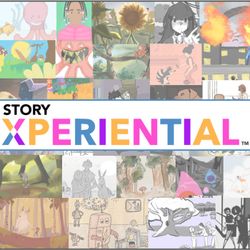
165. From Pixar to the Classroom: Teaching Storytelling w/ Story Xperiential
43:51||Ep. 165With the help of Teacher-Powered Schools, Socol-Moran Partners, Stimpunks, and What School Could Be, we’ve completed the lineup for our 4th annual virtual Conference to Restore Humanity for July 21-23, focused this year on the Quest for Connection. Tickets are just $50 and you can find out more info at humanrestorationproject.org/conferenceWe’re excited to have members of the team from Story Xperiential with us for today’s episode, which was recorded way back in 2024. Developed by veterans from Pixar and Khan Academy, Story Xperiential brings the art of professional storytelling into the classroom, giving students the tools to craft and share their own stories using the same creative process as major studios.The program is structured to fit into school schedules, offering a two-part curriculum: Storytelling Essentials, where students develop a story outline into a story reel, and Mastering Storytelling, where they expand their work into a full narrative. Through self-paced lessons, hands-on projects, and a moderated peer feedback system, students not only learn the technical aspects of storytelling but also gain confidence in their creative abilities.One unique aspect of Story Xperiential is how it can be integrated into every subject area, aligning with interdisciplinary content standards -- bringing together social studies and ELA, for example, or STEM and fine arts -- while also fostering skills like collaboration, critical thinking, and visual communication. In this episode, we’ll explore how Story Xperiential is being implemented in schools, hear about the impact it’s having on students, and discuss how storytelling can be a powerful tool for learning and self-expression.You’re gonna be hearing a few voices in this conversation. HRP director Chris McNutt is hosting this one, who you’re probably used to hearing on this show, and he’ll be talking to a few people on the StoryX team:Dennis Henderson VP of Education and StrategyChief Technical Officer, Tony DeRoseAnd Chief Learning Officer, Brit CruiseYou can learn more and sign your students up at https://www.storyxperiential.com/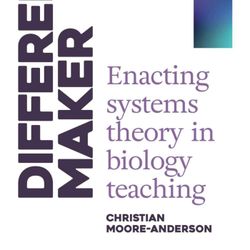
164. Sensemaking and Cybernetics in Classroom Teaching w/ Christian Moore-Anderson
53:23||Ep. 164With the help of Teacher-Powered Schools, Socol-Moran Partners, Stimpunks, and What School Could Be, we’ve officially announced our 4th annual virtual Conference to Restore Humanity for July 21-23, focused this year on the Quest for Connection. If you’re interested in joining us, tickets start at just 50 bucks and you can find the full lineup at humanrestorationproject.org/conferenceToday I’m joined by Christian Moore-Anderson. And I wanted to have Christian on to talk about the ideas that drive his teaching practice and that he shares in his book, Difference Maker: Enacting systems theory in biology teaching. While that title may seem daunting, Christian’s teaching would immediately look and feel to observers like “just good teaching.” But that's just the tip of the iceberg. Informing his theory and practice of teaching is a set of related ideas that I was largely unfamiliar with before encountering it in his book: cybernetics, systems theory, and enactivism. Cybernetics is simply a feedback loop. Just as someone steering a ship adjusts the rudder based on feedback from the ocean, so too does good pedagogy depend on what Christian calls “recursive teaching”, or a constant feedback loop of action, interpretation, and learning between teachers and students. You can connect with Christian on BlueSky @cmooreanderson.bsky.social.Difference Maker: Enacting Systems Theory in Biology Teaching - Christian Moore-AndersonChristian's Recommended Reading:From Being to Doing: The Origins of the Biology of Cognition - Humberto Maturana, Bernhard PörksenThe Pragmatic Turn: Toward Action-Oriented Views in Cognitive Science Edited by Andreas K. Engel, Karl J. Friston and Danica Kragic Understanding Systems: Conversations on Epistemology and Ethics - Heinz von Foerster The Cybernetic Brain: Sketches of Another Future - Andrew Pickering Runaway: Gregory Bateson, the Double Bind, and the Rise of Ecological Consciousness - Anthony Chaney
163. Inquiry, Play, and Early Childhood Education w/ Heidi Echternacht
01:00:00||Ep. 163If you go back through the HRP podcast archives, and I encourage you to do just that, you’ll see that we’ve covered just about every topic imaginable in the world of education, with some that keep returning again and again. One area you’ll probably notice a regrettable gap is in early childhood education, PreK-early elementary. One reason is that it’s just out of the experience of the two high school social studies teachers who started the podcast, and another is that foundationally, at least for the classrooms I’ve visited since, PreK-early elementary tends to get a lot more right about developmentally appropriate instruction and schooling than the middle and high school grades that follow. That’s a large part of why I reached out to my guest today to help unpack the ideas that make early childhood education such a powerful and important part of a child’s life.Heidi Echternacht is co-founder of Kinderchat, a weekly professional conversation, resource library, and online network for early childhood advocates and educators. Created and led by teachers, Kinderchat has hosted global discussions between and among professional educators and in-service teachers for over ten years. Author of The Kinderchat Guide to the Classroom, Heidi has been an educator of children for over 20 years and currently teaches second grade in Princeton, New Jersey.Kinderchat SubstackKinderchat.orgConnect with Heidi on BlueskyKinderchat GuidesIn Dialogue with Reggio EmiliaPeter Gray - Free to LearnVisible Learners - Mara Krechevsky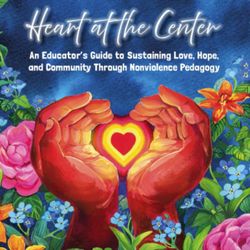
162. Sustaining Love, Hope, and Community Through Nonviolence Pedagogy w/ Mike Tinoco
46:27||Ep. 162Today we're joined by Mike Tinoco. Mike is a full time public school teacher from California, and author of Heart at the Center: An Educator's Guide to Sustaining Love, Hope, and Community Through Nonviolence Pedagogy. Gholdy Muhammad called the book "an urgent call for truth, love, and justice for every educator and community member who deeply dreams of and seeks peace.” Further, Mike is a certified Kingian Nonviolence and Center for Nonviolent Communication (CNVC) trainer who provides workshops around the country. miketinoco.comHeart at the Center: An Educator's Guide to Sustaining Love, Hope, and Community Through Nonviolence Pedagogy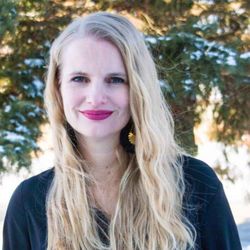
161. A Danish Perspective on American Education w/ Pernille Ripp
53:01||Ep. 161I’m thrilled to be joined today by Pernille Ripp — a passionate educator, author, and literacy advocate. She is the author of Passionate Readers: The Art of Reaching and Engaging Every Child, Passionate Learners: How to Engage and Empower Your Students, and Reimagining Literacy Through Global Collaboration. She’s also the founder of the Global Read Aloud, a program that has connected millions of students and teachers around the world through the shared joy of reading.And for all of our benefit, Pernille is also a prolific sharer. After teaching in Wisconsin for over a decade, In her BlueSky re-introduction she noted she was “back living in Denmark because she needed to breathe a bit easier.” And she frequently posts about her experience in the Danish education system, “Fun fact about teaching at my Danish school,” she writes, “when we are sick, we’re not required to write sub plans because we’re sick.” And by most measures, Danes are among the happiest in the world, despite having among the highest tax rates. Healthcare and PreK-College education is free. Hygge conjures cozy seasonal vibes. Denmark has some of the highest public education participation and teacher pay and some of the lowest student:teacher ratios and class sizes among their OECD peers, including the United States. On a more grim note of comparison, the Wikipedia page for “school shootings in Denmark” contains a single entry from 1994, the only school shooting in Danish history. However, as a PDF, the list of school shootings in the United States since 2000 is 169 pages long with footnotes.Regular listeners of this show will know just how immediately all of this grabbed my attention. In the past we’ve had guests talk about their experiences with everything from the education system in Trinidad & Tobago to the national Chinese college entrance exam, so I am thrilled at the opportunity to dig into both American and Danish society and education systems with someone who has knowledge and experience in both.Pernille Ripp Bluesky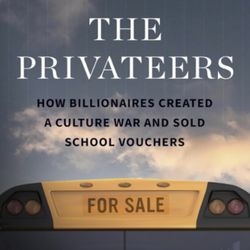
160. The Privateers: How Billionaires Creates a Culture War and Sold School Vouchers w/ Josh Cowen
40:56||Ep. 160There are any number of narratives that emerged from the 2024 election and that will be hotly debated over the next four years. However, one of those is not up for debate: that vouchers and school choice lost everywhere they were on the ballot in 2024. In Colorado, voters rejected a constitutional amendment that would’ve added “a right to school choice.” And in red-state Kentucky and Nebraska, voucher programs failed by nearly the same proportion that Donald Trump won. On this show we've focused a lot on culture war issues as they directly impact what and how classroom teachers can teach, and I suspect the culture war will come up in this conversation. But we've never actually dug into the specific issue of voucher programs, which also impact educators, parents, schools, and kids in over a dozen states, with even more to come in an explicit push for a national universal voucher program as a long-term federal policy goal. My guest today is Josh Cowen, a professor of education policy at Michigan State University. He’s written extensively about education politics, school choice, and culture wars in the United States, and you should definitely give him a follow on BlueSky @joshcowenmsu as he is very persistent in addressing the topic of his latest book, titled The Privateers: How BIllionaires Created A Culture War and Sold School Vouchers. I wanted to have Josh Cowen on to better understand, as we head into a new year and the next administration, how, like unsinkable rubber ducks, vouchers continue to fail to deliver on their promises and continue to be rejected by voters, and yet, we find ourselves on the verge of a nationwide voucher and school choice program. The Privateers @ Harvard Education PressJosh Cowen @ BlueSkyThe Effect of Taxpayer-Funded Education Savings Accounts on Private School Tuition: Evidence from Iowa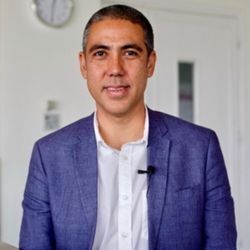
159. The Landscape Model of Learning w/ Dr. Kapono Ciotti
44:42||Ep. 159Quick update: Between recording and release, our guest, Dr Kapono Ciotti, is no longer with What School Could Be and that their PD options have changed. So check out their website @ whatschoolcouldbe.org for details. Enjoy the episode!Today we are joined by Dr. Kapono Ciotti. Dr. Ciotti is the Executive Director of What School Could Be, an organization offering a whole host of things: free resources, a flourishing community, coaching services, graduate coursework, and more; plus WSCB is one of Human Restoration Project’s partners. Prior to this work, Dr. Ciotti grew up in Honolulu, Hawai’i in a progressive, constructivist school and taught in the same area, then in Senegal, and then became a school leader in the United States and internationally. He’s worked in over one hundred schools across four continents, including as national faculty for the National Association of Independent Schools in diversity, equity, and justice.Dr. Kapono Ciotti @ Solution TreeDr. Kapono Ciotti @ PrincipledLearningWhat School Could Be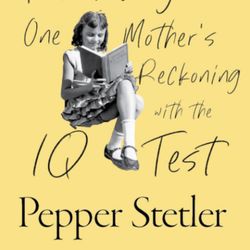
158. A Measure of Intelligence: One Mother's Reckoning with the IQ Test w/ Dr. Pepper Stetler
38:07||Ep. 158Today we are joined by Dr. Pepper Stetler. Pepper’s recently released book, A Measure of Intelligence: One Mother’s Reckoning with the IQ Test documents her journey alongside her daughter, Louisa, who was diagnosed with Down syndrome. It dives into the history and ongoing problematic issues with measuring intelligence, specifically how school and society uphold and reinforce misused and misappropriated labels. Pepper’s work on disability advocacy has appeared in The New York Times, The Atlantic, Slate, and The Washington Post, and she’s also an Art History professor at Miami University.Book: A Measure of Intelligence: One Mother's Reckoning with the IQ Test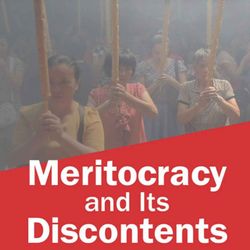
157. Meritocracy, Anxiety, & the Chinese College Entrance Exam w/ Zachary Howlett
52:59||Ep. 157I was not familiar at all with China’s national college exam, the gaokao, until reading about it in Susan Blum’s book, Schoolishness, and talking with her about it on a podcast episode we released in August – episode 152, you should check it out – and I’m incredibly grateful to Susan for making the connection with my guest today. Zachary Howlett is associate professor of Anthropology at the National University of Singapore, joining me from Singapore, and author of the book, Meritocracy and Its Discontents: Anxiety and the National College Exam in China. I thought at first ah, sure, every country has its school gatekeepers and methods of rationing secondary & post-secondary education – the SAT & ACT in the US, or the GCSE’s in the UK, for example – so how is this any different? But what I was not prepared for in Zachary’s work was the sheer magnitude of the gaokao as a deeply Chinese cultural, economic, political, and even a magical and religious phenomenon that touches every aspect of life, and for which there really is no American equivalent. The blurb on the back of the book from Karrie Koesel captures it so well, “Zachary M Howlett opens the black box of the gaokao to reveal that it is not only a fateful rite of passage, but also a complex social phenomenon laid in with ritual, magic, dark horses, examination champions, latent, potential, luck, character building, social inequity, and the possibility of changing one's fate.”Meritocracy and its Discontents book link